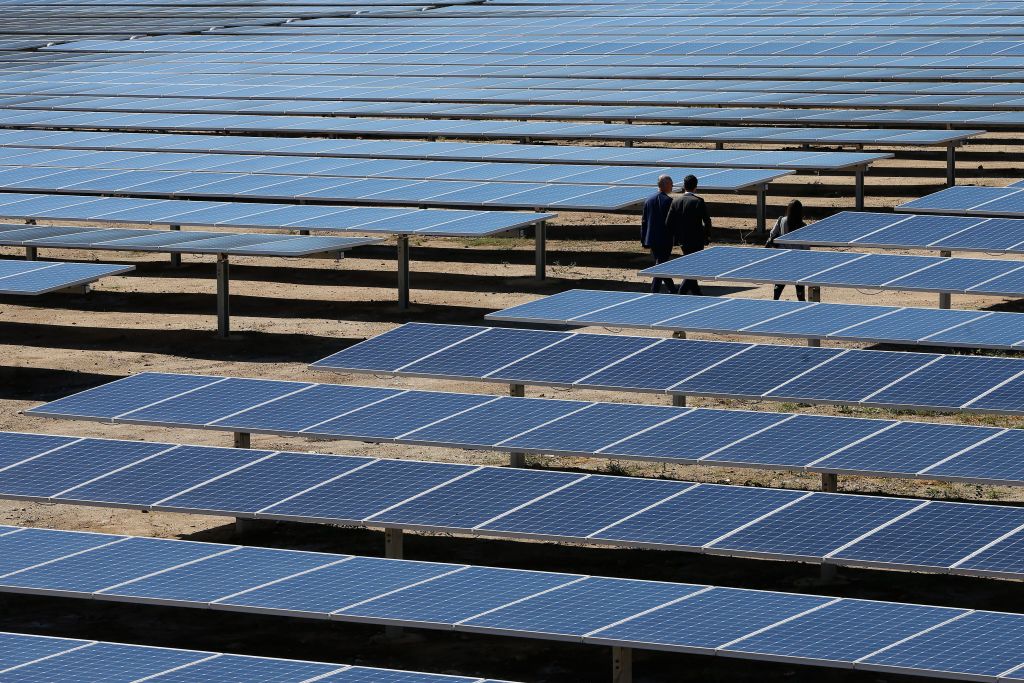Put your money where your morals are: ethical ideas for ESG investing

Whether or not you agree with activists like Greta Thunberg or campaign groups like Extinction Rebellion, there’s been a clear societal shift in recent years to recognise the need to tackle problems like climate change or global poverty.
One aspect of that shift is the increasing trend for savers to consider the environmental, social, and governance (ESG) factors in their investment decisions. ESG investors want to use their money to do good, as well as generate returns.
In the past, ethical and ESG investments were not particularly mainstream or popular, as they did not perform as well as broader portfolios that included so-called “sin stocks” such as oil and tobacco companies.
But this is no longer the case. ESG has gone from a niche corner of the market to a major trend, with many companies considering the environmental and social effect of their business. This is not just about being ethical, but about future-proofing your savings. After all, there’s no point in having lots of investments if there’s no planet to live on.
“A growing number of major investors are making it crystal clear that ESG principles are now critical to their decision making,” says Richard Jackson, managing director at Apache Capital Partners. “It’s a clear and growing trend, especially among institutional investors such as pension funds, who can’t afford to think short term.”
As ethical investing has become more mainstream, the number of ESG-related investment options has grown immensely. If you are keen for your money to reflect your morals, here are some ethical savings ideas.

Make an impact
For many, ethical investing just involves avoiding companies that are bad for society or the environment — for instance, avoiding fossil fuel stocks because of pollution concerns.
But ESG investors can also be proactive through impact investing.
This approach involves backing businesses that are having a positive impact on the world in some way, such as by selling solar panels and wind turbines that can generate renewable energy, or encouraging sustainable practices.
“There is an increasing wave of investment vehicles aimed at the man or woman on the street, seeking to offer the opportunity to combine financial returns with doing good,” explains Rupert Welchman, fund manager for the UBAM Positive Impact Fund.
“In this sense, impact investing focuses first and foremost on the products or services of a company and the benefits these can bring to the world. As these products and services tend to be in demand in a world that seeks to live more sustainably, we find that many of these companies become quite attractive investment opportunities too.”
The UBAM fund has returned 27.52 per cent in its first full year in existence in 2019. The general strategy of the fund is to invest in and support companies that the managers believe best deliver the 15 investible United Nations Sustainable Development Goals.
Impact investing can also help the economy to transition to a more sustainable future, according to Dick van Ommeren, managing director at Triodos Investment Management.
“It’s only through impact investing that we can support the innovative businesses that are truly tackling global issues,” he says. “We can’t achieve a more sustainable future alone, so we collaborate with the companies that we invest in to promote and encourage sustainable practices. We use our shareholder voting rights to ensure that decisions around financial profit are not made at the expense of people or planet.”
Triodos offers two impact investment funds: the Global Equities Impact Fund and the Pioneer Impact Fund. These funds have grown by 58.9 per cent and 59.2 per cent over five years. Anyone can invest in the funds either directly or through a stocks and shares Isa.
Of course, while it is positive that more and more investors are prioritising ESG and impact investing, there is also a need to ensure that these investments are responsible and that their effects are truly tangible across society, warns Martin Bellamy, co-chief executive and chair of This is Gravity.
“To create a real impact, there needs to be a clear commitment to encouraging companies and developers such as ourselves to commit to clean growth, which will help Britain achieve economic growth through clean technology and sustainable development,” he says. “The UK already has a Clean Growth strategy in place, and Gravity is developing the country’s first commercial smart campus near Bristol, designed from the ground up to enable today’s giants and tomorrow’s unicorns to grow cleanly.”

Renewable returns
If your biggest concern is climate change and the environment, you could focus your investments into renewable energy specifically.
There are several investment funds available that enable you to directly invest into solar energy projects and wind farms and own a piece of the electricity production process, rather than just in companies that make and sell panels or turbines.
Investing in these sorts of infrastructure projects can be very lucrative, as they are often able to pay out regular dividends that rise in line with inflation.
One example is the Greencoat UK Wind fund, which is worth £2.2bn and operates several wind farms across the country. Over one year, shares in the fund grew by 10.49 per cent, and for 2019 it paid out a dividend of 6.94p per share.
“Greencoat Capital’s aim is to generate stable returns for investors through investment into the renewable energy and resource efficiency sectors,” says Stephen Lilley, partner at Greencoat Capital. “Renewable infrastructure — such as wind farms, solar farms, and bioenergy plants — offers the opportunity to secure stable, long-term returns, often with inflation protection, while having a positive impact on the environment by helping to accelerate the roll-out of renewable generation capacity, and lower the UK’s emissions.”

Pension power
If you’re signed up to a workplace pension scheme, you could consider using your retirement savings to make the world a better place.
Nearly nine million UK employees have savings with Nest, the workplace pension provider set up by the government to help with auto-enrolment. Most will be invested in the default Nest Retirement Date Funds, but many may not realise that they can switch to other Nest funds that are better performing.
Two in particular will appeal to ESG investors. There’s the Nest Ethical Fund, which excludes investing in companies that cause harm and proactively invests in organisations that make a positive contribution to society. And then there’s the Nest Sharia Fund, which screens its investments to make sure that they comply with Islamic Sharia standards, excluding companies that are involved in other harmful areas such as alcohol, tobacco, weapons production, and gambling.
Both the Ethical and Sharia funds have outperformed Nest’s default fund, growing by 20.7 per cent and 28.9 per cent respectively over one year, compared to the Retirement Fund’s 16.9 per cent growth.
“Nest’s ethical pension available to auto-enrolled employees outperforms its default pension scheme,” says Lisa Ashford, chief executive of the ethical investment provider Ethex. “Many companies are switching to this pension because it does better financially and ethically.”
By backing ethical pension funds like these, employees know that their savings are doing good, as well as doing well.
Main image credit: Getty
Sign up to City A.M.’s Midday Update newsletter, delivered to your inbox every lunchtime